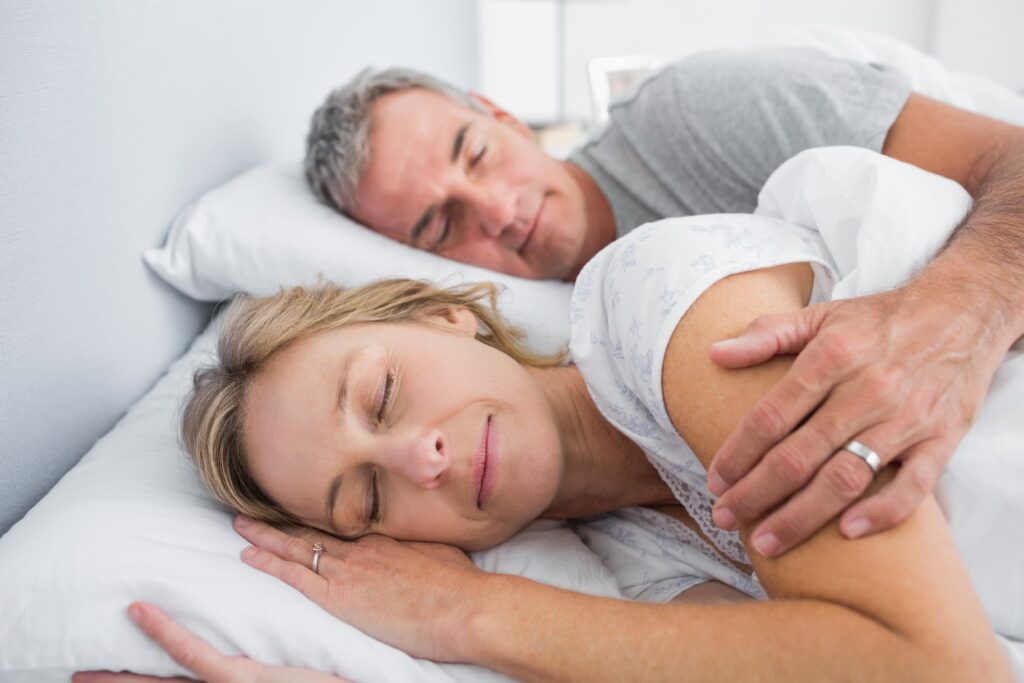Sleep differences between men and women
It might surprise you to learn that there are key sleep differences between men and women. Read our blog to find out what they are.

How well do men and women sleep?
While men and women need the same amount of sleep, the quantity and quality of sleep differs between each group.
What are the sleep differences between men and women?
Overall, women sleep longer than men and spend more time in the deep state of sleep compared to men. However, women experience more disrupted sleep and therefore lower quality of sleep. It’s believed women sleep longer than men in an attempt to make up for this lower quality sleep.
Why do men and women sleep differently?
Hormones
A key reason for the differences between men and women’s sleep relate to hormones. Shifts in hormone production over the course of a woman’s life can create significant problems. These can be related to the menstrual cycle, pregnancy and menopause.
For example, pre-menstrual syndrome (PMS) and premenstrual dysphoric disorder (PMDD) can contribute to disruptions to sleep. Almost 50% of pregnant women experience insomnia-like symptoms which may continue after birth. And for women experiencing menopause, up to 85% of them may experience hot flushes and night sweats that significantly disturb their sleep
Sleep Cycles
Another contributing factor is that men and women have different sleep cycles, which typically begins between the ages of 30 and 40. On a normal night of sleep, most people progress through 3 to 5 sleep cycles, that are made up of distinct sleep stages. Women tend to spend more time in the deep sleep stage and less time in the light sleep stage.
Circadian Rhythm
The circadian rhythm is a 24-hour internal body clock that controls your cycles of sleep and wakefulness. On average, this is about 6 minutes shorter for women which means women are more likely to sleep and wake up earlier, and therefore identify as ‘morning people’.
Other Health Issues
Other health issues can also contribute to differences between men and women’s sleep. Research has shown that:
- Women are more likely to have insomnia and restless leg syndrome
- Women are more likely to be diagnosed with depression and anxiety which interfere with falling and staying asleep
- Women also have higher rates of incontinence and overactive bladder which causes them to wake frequently during the night
- Men are more likely to have obstructive sleep apnoea which causes poorer sleep quality
- Men have higher rates of cardiovascular disease and lung problems which negatively affect sleep
- Men are also more likely to use alcohol and tobacco which interrupts sleep.
What can you do?
It’s important to remember that while there are sleep differences between men and women, sleep varies considerably from person to person and is influenced by a wide range of factors. The best thing you can do to ensure you get a good nights’ sleep is to
- Stick to a regular sleep schedule (i.e. going to bed and waking up at the same time)
- Avoid staying up late to watch TV
- Avoid electronic devices before bed
- Relax before bed
- Avoid caffeine and other stimulants before bed
- Go easy on alcohol
- Don’t eat too much before bedtime
- Exercise regularly, although not too close to bedtime
- Make sure you’re sleeping on a comfortable, supportive mattress.
At BedGuard, we’ve been helping men, women and children get a good nights’ sleep since 2009. Let us help you. Come in-store or browse online today.





